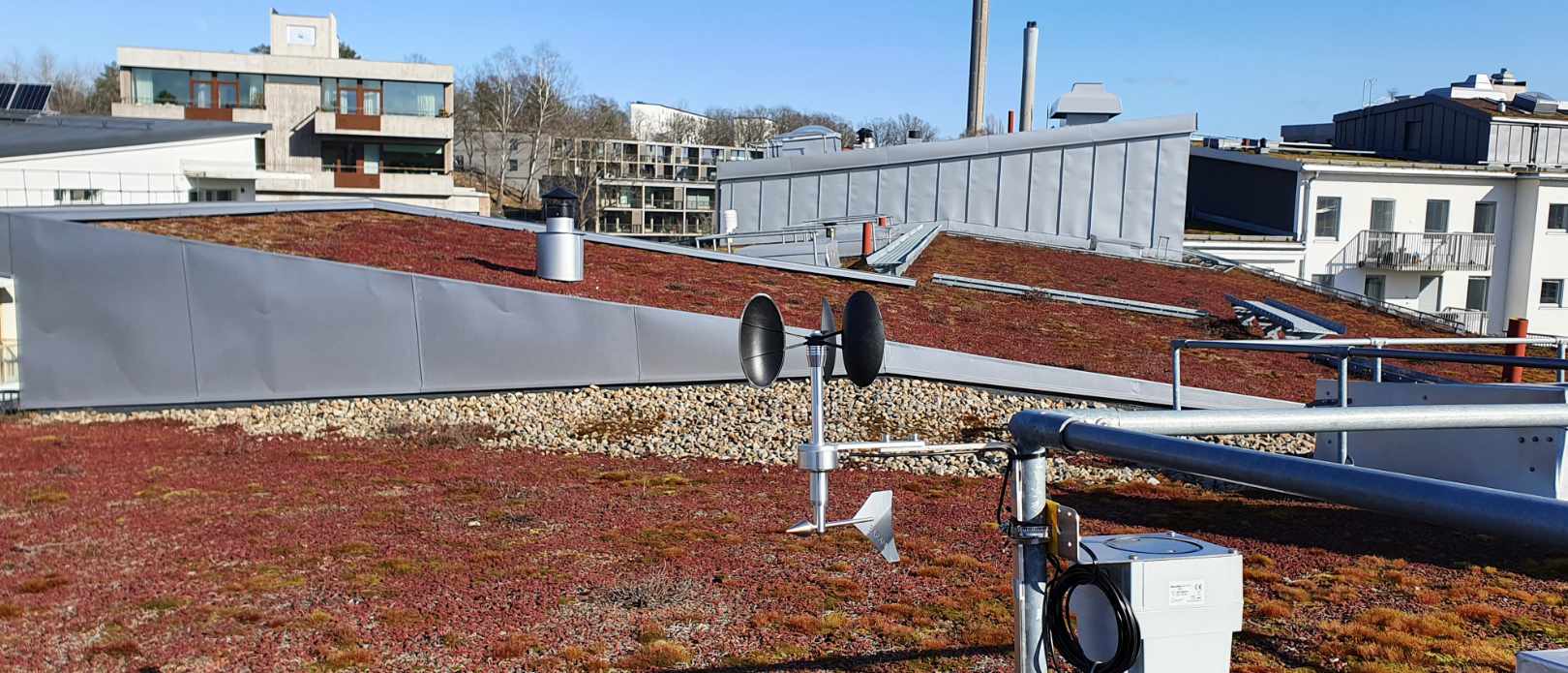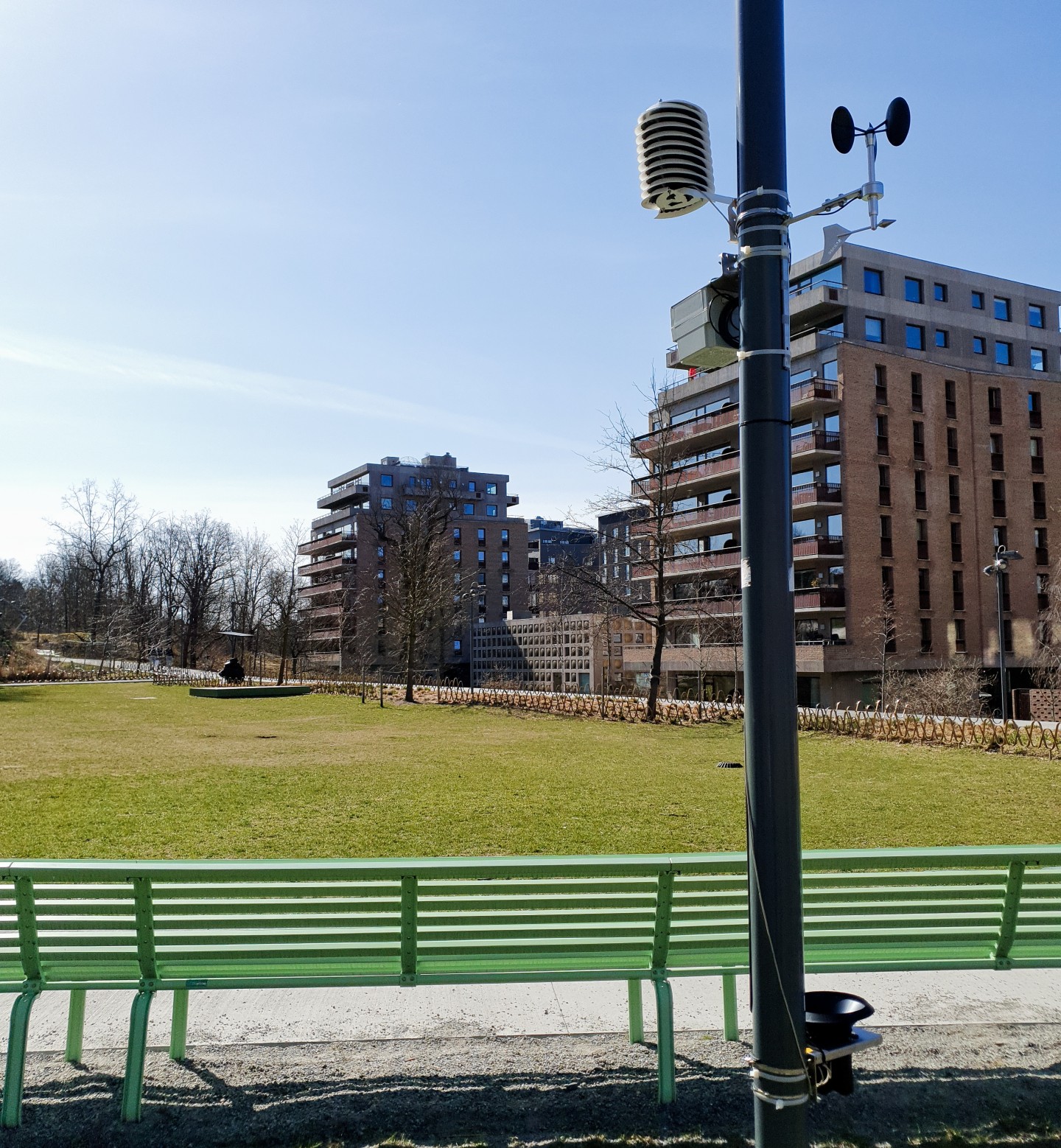URBAN DESIGN
Helping design smarter urban green spaces

Weather stations installed across different locations such as green roofs, forests, and courtyards, residents have access to updated information every ten minutes. Photo: A. Branny
New climate platform offers residents in Stockholm suburb real-time access to how greeneries influence local weather conditions
Text
A new online platform offers residents in Norra Djurgårdsstaden, a suburb in Stockholm, data on air temperature, humidity, pressure, wind, rainfall and solar radiance across the suburb.
With 18 smart weather stations installed across different locations such as lawns, rain gardens, green roofs, forests, and courtyards, the residents have access to updated information every ten minutes. For example, users can compare the cooling effect of different green spaces during heat waves.
More effective planning
The initiative is part of the Smarter Greener Cities project, which uses the latest technology to measure the impact of green spaces on the local climate. This can help improve urban infrastructure and climate resilience in cities. See video below.
“This project paves the way towards smarter, greener cities of the future,” says Artur Branny. He is a centre researcher and project leader.
“By knowing how urban nature is performing, we can adopt more effective urban planning practices more resilient to hotter, wetter and more extreme weather conditions,” he explains. This can also help inform how to maintain urban green spaces more efficiently.

Effects of green roofs
One of the housing associations in Norra Djurgårdsstaden has agreed to participate in the Smarter Greener Cities project. The association has green roofs which makes it particularly interesting for the project.
“We hope that this project will be able to establish that relatively small measures, such as green roofs, will be able to have a positive effect on our environment. It can also be interesting to be able to follow the data collected,” says Karin Gustafsson, a board member of the Laduviken housing association.
The project is coordinated by researchers from the Stockholm Resilience Centre in partnership with the City of Stockholm, the Stockholm Royal Seaport Office, Urban Systems Lab, SensCity, University of Copenhagen, University of Helsinki and Finnish Environment Institute (SYKE).






